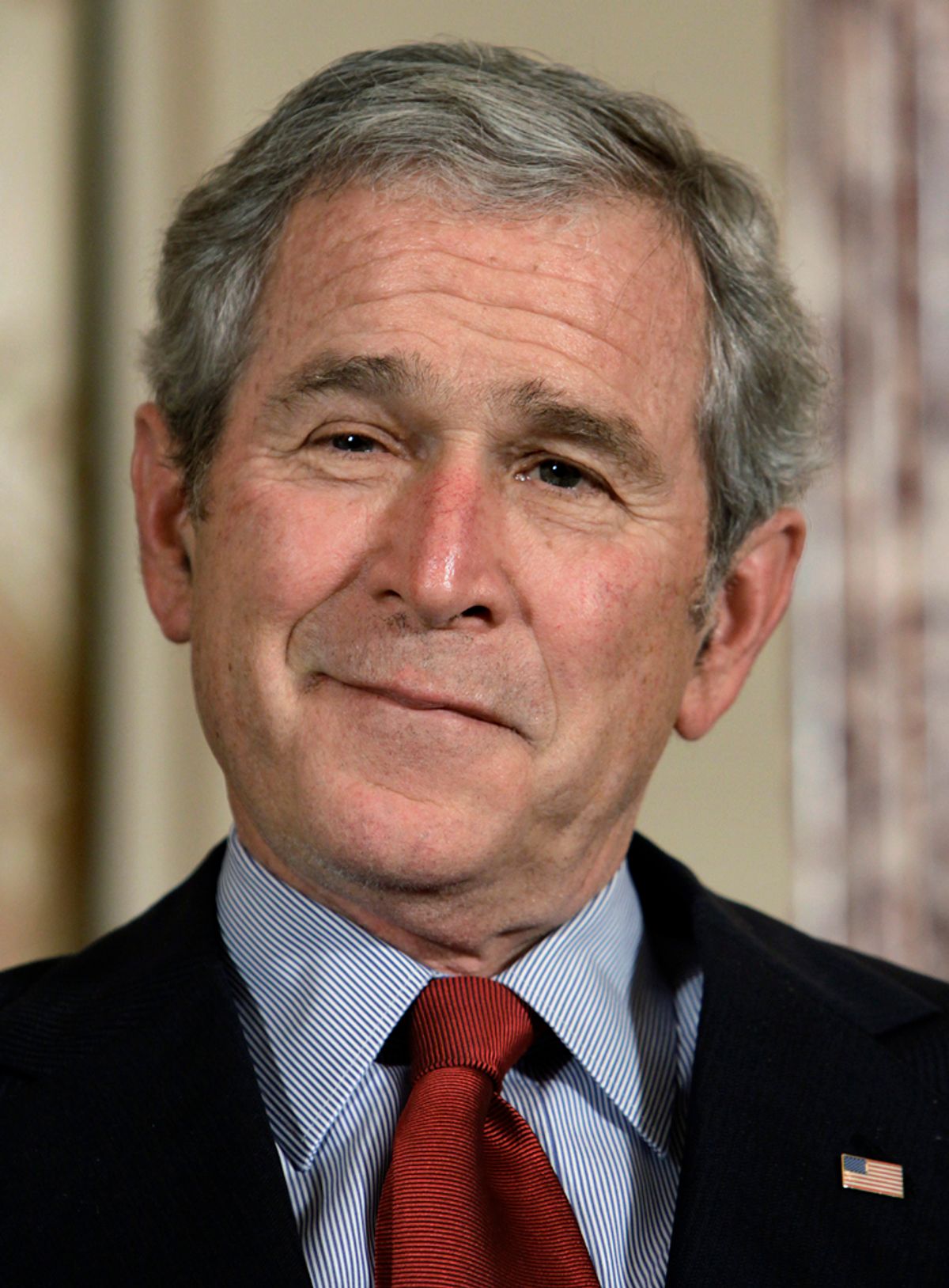George W. Bush’s memoir, "Decision Points," is due to be released Tuesday (with the obligatory national TV interview, conducted by Matt Lauer to air tonight), but most of the good stuff is already circulating on the Web. What have we learned so far?
- Bush is still linking Saddam to WMD: Sure, he no longer tries to prove Saddam had weapons of mass destruction, but as David Corn points out, that hasn’t stopped him from subtly implying that the "homicidal dictator" (correct) was still in the process of "pursuing WMD" (wrong).
- He "did consider" replacing Cheney in 2003: Because the vice-president was a "lightning rod of criticism," Bush admits he contemplated taking Cheney up on his offer to leave the administration after the 2004 elections. It was, he wrote, a chance to demonstrate to Americans who was really "in charge."
- Kanye West's post-Katrina comments hit hard: George Bush's presidency covered all corners of controversy, but what was the "all-time low"? Seven words uttered in a state of panic by a hip-hop star: "George Bush doesn't care about black people."
- Cheney's friendship factored into the Scooter Libby decision: After Libby was found guilty of lying under oath during the Valerie Plame trial, Cheney believed Bush owed it to the vice-president’s chief of staff to offer him a full pardon. Bush, of course, ultimately commuted Libby's sentence -- but now admits that he was worried this compromise might complicate his friendship with an "angry" Cheney.
- His mother showed him the fetus of his would-be sibling: Barbara Bush suffered a miscarriage when her son was a teenager, and afterward opted to show the fetus, which she was storing in a jar, to her then teenage son. Bush considers the incident key to his pro-life stance, telling Lauer "there's no question that affected me, a philosophy that we should respect life."
- He explicitly permitted waterboarding: Bush's presidency was marked by a prolonged legal and ethical debate over whether waterboarding is a legitimate interrogation technique or a form of torture. Bush himself wasn't so conflicted. When the CIA asked permission to use the tactic during the questioning of Khalid Sheikh Mohammed, an alleged 9/11 attacker, his reply was painfully terse: "Damn right."
- He thinks his Texas governorship prepared him for 9/11: In the moments after he first heard about 9/11, the president famously sat silent. But that was anger, not shock, he now says. So why did he sit motionless? He knew "people were going to be watching my reaction. And I’d had enough experience as governor of Texas ... to know that the reaction of the leader is essential in the first stage of any crisis."
- A bioterror scare in 2001 prompted fears that Bush had been infected: On a trip to China shortly after 9/11, Cheney asked Bush to enter a tent, along with Colin Powell and Condoleezza Rice. The issue? The toxin botulism had been detected inside the White House. Cheney told Bush that he might be infected (although he wasn't.) And why the tent? "Because Chinese listeners cannot penetrate the tent."
- He takes a shot at his old political foe, John McCain: Bush says McCain, who "suspended" his presidential campaign during the Wall Street meltdown, missed an opportunity to wield the financial collapse to his advantage during his presidential campaign. "In periods of crisis," Bush writes, "voters value experience and judgment over youth and charisma." But, Bush concludes, McCain didn’t handle "the challenge in a statesmanlike way."
- Putin's got a big dog: As Maureen Dowd noted in her Sunday column, Vladimir Putin once bragged to Bush that his dog was "bigger, stronger, and faster" than Bush's beloved Barney. "[You're] lucky he only showed you [the] dog," Stephen Harper, Canada's prime minister, later told Bush.
- He was a "dissenting voice" on Iraq: Despite the rushed resolutions in Congress and the U.N., Bush maintains he was reluctant to go to war and that he "didn’t want to use force" unless entirely necessary. That said ...
- He also will not issue an apology for the Iraq war: "Apologizing would basically say the decision was a wrong decision," he tells Lauer.



Shares